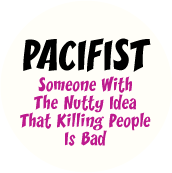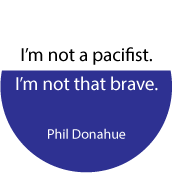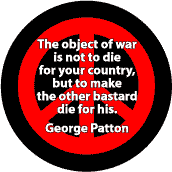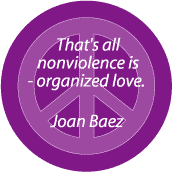Some liberal mined violent
Call up on pacifists
To condemn a brand of violence
To wit
They object
Ultimately subjected
To accost
Without benefit analysis
Coming efface to efface
With realty
And a sorted loved wons
Unwilling to accede where others have flailed
The brand they hide
Singularly fingered
Buy pacifists
Calling a tension two
A third weigh
Of the largesse possible
An unwelcome piece
When wanting more than have
Of everything fourth with
Ironying details
Ever beyond that which is a greed
How to saddle for less
Than being cowed
And truth be tolled
The violent
As a madder of practice
Get their weigh
A tempting feudal steer
Milking it for all a veil
In udder disbelief
As much as we can
Due better
Keeping nothing bottled up
Unleashing everything even remotely herd
Know longer listening
Too the artless
Like sum stock ticker
An engine only for the vain
Abase symbol for awe to hear
As the lover of awe kinds
Relinquishes the bully pulpit
In respect to those assembling
Not dissembling
Pacifists such as myself are sometimes called upon by those who are selectively violent to roundly and reliably condemn some violence that is repugnant to their preferred modes of violence.  This convenient opportunism by “liberal mined” violent can hopefully serve as an opportunity for pacifist to draw connections and expose biased interests in enterprises that vainly wish to promote some kinds of violence and condemn other forms of violence, yet miraculously divorce means and ends and somehow produce a nonviolent state. The situation that came to mind for me in this poem harkens back to the early 1980’s as a peacemongering student at Hope College. I was asked by a conservative political science professor to serve as an expert witness in the campus’ mock United Nations proceedings. Specifically, he was asking me to address violence by Palestinians against Israelis. Much to his chagrin, I spoke about violence in the Israeli occupation of Palestine proportional to the violence present, that is, overwhelmingly committed by Israel and backed by the political and financial patronage of the United States.
This convenient opportunism by “liberal mined” violent can hopefully serve as an opportunity for pacifist to draw connections and expose biased interests in enterprises that vainly wish to promote some kinds of violence and condemn other forms of violence, yet miraculously divorce means and ends and somehow produce a nonviolent state. The situation that came to mind for me in this poem harkens back to the early 1980’s as a peacemongering student at Hope College. I was asked by a conservative political science professor to serve as an expert witness in the campus’ mock United Nations proceedings. Specifically, he was asking me to address violence by Palestinians against Israelis. Much to his chagrin, I spoke about violence in the Israeli occupation of Palestine proportional to the violence present, that is, overwhelmingly committed by Israel and backed by the political and financial patronage of the United States.
Probably the largest complaint that apologists for violence have against pacifists is that they are “passivists,” complicit and enabling of injustices, specifically, and perhaps presumptuously, injustices that seem only solvable through violence, or at least the right “kind” of violence. Complicity to violence and injustice is a profoundly true charge to both pacifists and apologists for violence. Pacifism sets the bar high and regularly fails at fully fulfilling its high calling. Feel free to contrast this limit of idealism (and its harms?) with the cynical acceptance (realism?) that killing others is necessary for justice (usually just us). If the notion and practice of necessary evil doesn’t make your head explode, it will quite assuredly shrink your heart, particularly if aspiring to follow a God of love. I see Gandhi’s simple taxonomy of roles in the necessarily epic struggles for justice as insightful. Gandhi spoke of nonviolent “warriors,” violent warriors, and cowards.  He saw these ordered in terms of moral achievement; the pacifist activist, then soldiers, and lastly, cowards. Of course, poorly performing pacifists can fall into the pit of fear and cowardice, unsuccessfully bridging the gap between talking the talk and walking the walk. Soldiers have an inherent advantage in that a significant proportion can be expected to face death in combat situations. This engenders a palpable sense of courage for facing such situations, whether, in fact, these situations are just or not. Willingly facing being killed or severely harmed is the definition of courage. We can learn a lot from soldiers (not the least of which is that the most vehement anti-war activists are often veterans of military combat, sometimes simply slaughter). Courage is commendable. Having skin in the game is the necessary good. Any pacifist worth their salt will embody courage and skin in the game. Evil, and its even uglier companion, necessary evil, can only thrive amidst cowardice and not having skin in the game. Without courage, cowardice will rule the day (and night). Without skin in the game, the privileged will continue to keep their foot on the neck of the disenfranchised, usually through a complex system of subcontracting not requiring their actual foot to do the dirty work. A cowardly, distracted and narcotized public will earn an assist in maintaining their somewhat more advantageous state in the hierarchy of privilege and disenfranchisement.
He saw these ordered in terms of moral achievement; the pacifist activist, then soldiers, and lastly, cowards. Of course, poorly performing pacifists can fall into the pit of fear and cowardice, unsuccessfully bridging the gap between talking the talk and walking the walk. Soldiers have an inherent advantage in that a significant proportion can be expected to face death in combat situations. This engenders a palpable sense of courage for facing such situations, whether, in fact, these situations are just or not. Willingly facing being killed or severely harmed is the definition of courage. We can learn a lot from soldiers (not the least of which is that the most vehement anti-war activists are often veterans of military combat, sometimes simply slaughter). Courage is commendable. Having skin in the game is the necessary good. Any pacifist worth their salt will embody courage and skin in the game. Evil, and its even uglier companion, necessary evil, can only thrive amidst cowardice and not having skin in the game. Without courage, cowardice will rule the day (and night). Without skin in the game, the privileged will continue to keep their foot on the neck of the disenfranchised, usually through a complex system of subcontracting not requiring their actual foot to do the dirty work. A cowardly, distracted and narcotized public will earn an assist in maintaining their somewhat more advantageous state in the hierarchy of privilege and disenfranchisement.
Of course, the difference between a pacifist and a soldier is not the willingness to die for a cause, but the (un)willingness to kill for a cause. The willingness to kill is the preeminent prerequisite of a soldier.  In regard to willingly dying and willingly killing, perhaps the infamous WWII General George Patton said it best, “The object of war is not to die for your country but to make the other bastard die for his.” Further, in the calculus of soldiering, we must remember that in modern times (the last 100+ years), military combat has frighteningly consistently killed over ten noncombatants/civilians for every soldier killed. By what stretch of imagination do “realists” consider this courageous and honorable? The cowardice inherent in the proposition of necessary evil is the root of much evil in this world. The fantasy of necessary evil is nothing short of an abnegation of responsibility, an idol worship of something other than the free will and moral agency of which we are endowed.
In regard to willingly dying and willingly killing, perhaps the infamous WWII General George Patton said it best, “The object of war is not to die for your country but to make the other bastard die for his.” Further, in the calculus of soldiering, we must remember that in modern times (the last 100+ years), military combat has frighteningly consistently killed over ten noncombatants/civilians for every soldier killed. By what stretch of imagination do “realists” consider this courageous and honorable? The cowardice inherent in the proposition of necessary evil is the root of much evil in this world. The fantasy of necessary evil is nothing short of an abnegation of responsibility, an idol worship of something other than the free will and moral agency of which we are endowed.
As a spiritual practice, I find pacifism, ruling out the killing of others, as a profoundly creative practice. You may be surprised at the depths of creativity accessible by dispatching the human perversion called necessary evil and the barbaric practice of killing others. Without presupposing limits on human goodness, you can unleash new experiments, pioneer new ground (sometimes observed as common ground), raise the heights to which humans may aspire, and make the world friendlier to love.  As Joan Baez so elegantly and succinctly said, “That’s all nonviolence is — organized love.” Of course, my paraphrase would be: nonviolence is just, organized love…
As Joan Baez so elegantly and succinctly said, “That’s all nonviolence is — organized love.” Of course, my paraphrase would be: nonviolence is just, organized love…


